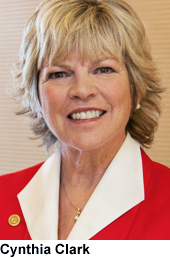When nurses stay silent, patient safety may be compromised.

Many nurses in both practice and academic settings fail to speak up because they lack confidence. Mastering the skills of effective communication takes practice and feedback.
Your silence is consent.
—Plato
 Preventing harm caused by disrespect has been identified as the next frontier in efforts to improve patient safety. Disrespectful and uncivil behaviors in academic and practice settings can have lasting effects on people, teams, and organizations, ultimately affecting patient care. Uncivil acts include name-calling, gossiping, backstabbing, refusing to help a colleague—and staying silent when speaking up is warranted.
Preventing harm caused by disrespect has been identified as the next frontier in efforts to improve patient safety. Disrespectful and uncivil behaviors in academic and practice settings can have lasting effects on people, teams, and organizations, ultimately affecting patient care. Uncivil acts include name-calling, gossiping, backstabbing, refusing to help a colleague—and staying silent when speaking up is warranted.
Maxfield and Grenny asked healthcare professionals to describe an incident that put patient safety at risk and collected more than 2,500 stories. From these, they identified five major problems: 1) unmotivated peers, 2) difficult peers, 3) poor leadership, 4) favoritism, and 5) unresponsive physicians. In a follow-up study designed, in part, to determine whether proactive dialogue helps prevent negative outcomes, the authors concluded that none of the five problems they identified is the real issue.
The real problem is that few people speak up and address issues. When nurses stay silent—particularly in situations where patient safety may be compromised—life-threatening mistakes, preventable complications, or near misses may occur.
Why do nurses stay silent when speaking up is warranted?
In some organizations, it’s because silence has become an acceptable norm. Unhealthy behaviors—for example, deferring to powerful members of the healthcare team, such as a nurse manager who controls scheduling and work distribution—are sustained by an invisible but accepted code of silence. Speaking up is considered “rocking the boat.” Rather than risk receiving an undesirable work schedule or an unreasonably challenging assignment, nurses choose silence.
My experience has taught me that many nurses in both practice and academic settings fail to speak up because they lack confidence. Mastering the skills of effective communication and conflict negotiation takes training, practice, debriefing, and reinforcement over time. Often, these skills don’t come easily or naturally because uncivil encounters are unique and complex.
Civility matters
In 2008, the Center for American Nurses strongly recommended that all nurses be made aware of the prevalence of incivility in healthcare, educated to recognize and address incivility in the workplace, and equipped with effective strategies to mitigate uncivil behavior.
The ICN Code of Ethics for Nurses, updated by the International Council of Nurses in 2012, emphasizes the nurse’s responsibility to respect human rights, treat others with dignity and respect, and provide respectful and unrestricted care.
The Code of Ethics for Nurses With Interpretive Statements, published by the American Nurses Association in 2015, clearly articulates the obligation of all nurses to foster safe, ethical, and civil workplaces. Specific provisions of the code speak directly to the nurse’s responsibility to act in a manner consistent with maintaining patient, co-worker, and personal safety, civility, and respect.
In 2016, the American Association of Critical-Care Nurses reaffirmed six standards for establishing and sustaining healthy work environments and concluded that unhealthy work environments and relationship issues “can become the root cause of medical errors, hospital-acquired infections, clinical complications, patient readmissions, and nurse turnover” (p. 8).
It’s clear that nurses in all settings must be equipped with evidence-based strategies to foster healthy work environments and address acts of incivility that threaten teamwork and patient safety.
Ending silence with cognitive rehearsal
Cognitive rehearsal (CR) is an evidence-based technique used to prepare a person for potentially stressful confrontation by anticipating and rehearsing ways to address it, thereby strengthening the probability of a favorable outcome. Being well-prepared, speaking with confidence, and using respectful expressions to address incivility empower nurses and other healthcare professionals to advocate for patient safety and workplace health. CR prepares people for uncivil encounters through 1) prebriefing, 2) identifying scenarios for simulation, 3) role-playing and rehearsing responses, 4) practicing simulated scenarios repeatedly, and 5) debriefing after the encounter.
Three CR scenarios
Consider the following scenarios, which use the proven benefits of cognitive rehearsal to formulate scripted approaches to address uncivil situations.
The case of Mrs. Bailey: Mrs. Bailey has a history of congestive heart failure and emphysema. She underwent hip replacement surgery three days ago, and her surgeon, Dr. Ellis, has written an order for her to be discharged today. Keith is the nurse assigned to care for Mrs. Bailey. During his assessment, he notices that Mrs. Bailey is having difficulty breathing and is complaining about chest tightness. Her skin is clammy and moist, her pulse rapid, and her blood pressure higher than usual. Because she has orders to be discharged, Keith decides to notify Dr. Ellis about her condition.
But Keith is somewhat reticent to contact Dr. Ellis because the surgeon is known for his brusque and demeaning communication style. Because Keith is concerned about Mrs. Bailey, he decides to use the CUS model to frame the conversation.
CUS is an acronym developed by TeamSTEPPS to devise scripted statements that help healthcare professionals communicate effectively and respectfully when patient safety is in jeopardy. CUS stands for three key words—concerned, uncomfortable, and safety—that help healthcare professionals communicate effectively and respectfully. Note how Keith uses concerned, uncomfortable, and safe in his statement to Dr. Ellis:
Dr. Ellis, I’m CONCERNED about Mrs. Bailey. She’s having difficulty breathing, is complaining about tightness in her chest, and her blood pressure is 180/92. Given her history of congestive heart failure and emphysema, I’m UNCOMFORTABLE discharging her until we know it’s SAFE to do so. We need you to reassess her condition before letting her go home.
Dana’s story: “One of the most stressful experiences of my nursing education happened during a clinical rotation. I had a very erratic, labile, and unsupportive clinical instructor—Professor Green. In fact, she was pretty much absent and unavailable. After giving us our clinical assignments, we wouldn’t see her again until hours later, during postconference. She was critical and harsh, and I found myself constantly questioning whether I wanted to be a nurse. I kept praying I would get through the semester and made every attempt to avoid conflict with her. I kept telling myself, ‘Just hang in there; this, too, shall pass.’ But in the end, I knew I needed to address the situation.”
Dana rightly perceives the stakes to be quite high because faculty members hold positions of authority and are “the keepers of the grade book.” After requesting a meeting with Professor Green, Dana opens the conversation using the DESC model. DESC is an acronym, also from TeamSTEPPS, that stands for describe the situation or behavior, express your concerns about the situation, suggest alternatives and seek agreement, and state consequences and impact while striving for consensus.
Here is Dana’s statement (in italics), divided into its DESC components.
Describe:
Thank you for meeting with me, Professor Green. I’d like to talk with you about my clinical experience at Acme Medical Center.
Express:
I realize how busy you are, and I appreciate the considerable responsibility you have in overseeing our clinical experiences. Yet, when I’m unable to discuss important issues related to my patient’s condition or when I’m addressed in a negative tone, it impacts my ability to give my patients the best possible care.
Suggest:
I would like to spend more time with you to ensure that I am delivering optimal patient care.
Consequence:
Can we discuss a plan to address these concerns?
The tenure dilemma: Emma is an untenured, early-career faculty member. During a recent faculty meeting, she politely disagreed with a point made by Carolyn, a more senior faculty member. During the meeting, Carolyn said nothing. But when the meeting was over, she walked up alongside Emma when no one was around and snidely reminded her that she—Carolyn—chairs the Promotion and Tenure Committee, and she will be reviewing Emma’s application for tenure. Carolyn informs Emma, “I will have to think long and hard about my vote because you openly challenged me in the meeting.”
Recognizing the stakes are high, Emma decides to address the situation with Carolyn in a private setting and plans to use “I” messaging to frame the conversation. “I” messaging focuses on the perceptions or beliefs of the speaker rather than attributes of the listener. By avoiding blame-shifting, “I” messages provide a means to address conflict in a constructive manner and preserve relationships, as illustrated by Emma’s opening statement:
Carolyn, thank you for meeting with me. I’d like to talk about the exchange we had in the hallway following the faculty meeting. It sounded like my tenure application may be in question because I disagreed with your position on curriculum changes. Did I interpret your intention correctly? I’d like to hear your thoughts on the matter.
Then Emma listens—to understand.
These are just a few techniques to address incivility. None of the approaches is foolproof. There is no guarantee that using the “right” approach for a particular situation will make a difficult conversation go smoothly or successfully resolve a conflict. However, using a communication approach that evidence has shown to be effective is better than failing to communicate at all. If we avoid dealing with a problem, it is not likely to go away.
Engaging someone in conversation about a negative situation is stressful, especially when emotions are running high or we feel unprepared. Cognitive rehearsal that employs evidence-based scripting and skilled debriefing is an effective approach for addressing uncivil encounters. Role-playing provides an opportunity to practice addressing those confrontational situations in a civil manner, and debriefing sessions provide safe places to reflect on a particular approach and explore effective ways to address future situations—what works and what doesn’t.
Key to success is repetitive practice of various experiences, accompanied by skillful coaching. Through practicing and debriefing, the learner gains the ability to respond almost automatically to uncivil encounters in an appropriate manner that doesn’t cause conflict to escalate. By learning effective ways to resolve conflict, practicing what we learn, and receiving insightful feedback to guide us when conflict occurs, we acquire the ability to address incivility more effectively when it does occur. It certainly beats silence. RNL
 Cynthia Clark, PhD, RN, ANEF, FAAN, strategic nursing advisor and consultant for ATI Nursing Education, founder of Civility Matters, and author of Creating & Sustaining Civility in Nursing Education, is a psychiatric nurse/therapist and an expert in fostering civility and healthy workplaces. A professor emeritus at Boise State University in Boise, Idaho, USA, Clark is recognized for her pioneering work in fostering civility in the nursing community.
Cynthia Clark, PhD, RN, ANEF, FAAN, strategic nursing advisor and consultant for ATI Nursing Education, founder of Civility Matters, and author of Creating & Sustaining Civility in Nursing Education, is a psychiatric nurse/therapist and an expert in fostering civility and healthy workplaces. A professor emeritus at Boise State University in Boise, Idaho, USA, Clark is recognized for her pioneering work in fostering civility in the nursing community.
Editor’s note:
Cynthia Clark presented Combining the Power of Cognitive Rehearsal, Simulation, and Evidence-Based Scripting to Foster Healthy Work Environments on Friday, 22 February 2019, at Sigma’s Creating Healthy Work Environments conference in New Orleans, Louisiana, USA. See the Virginia Henderson Global Nursing e-Repository for additional information.
Check out these additional articles by presenters.